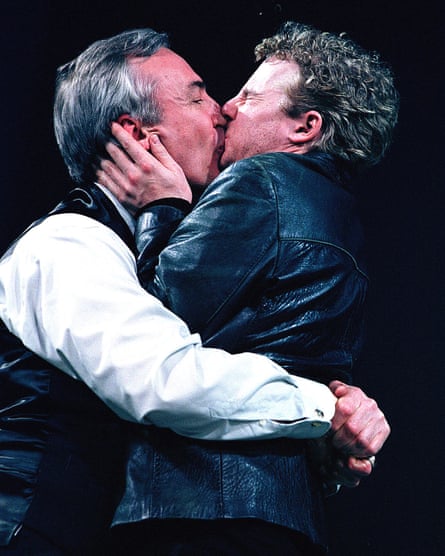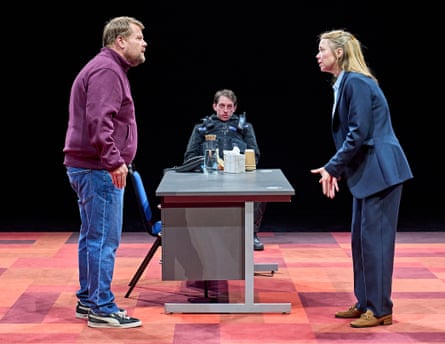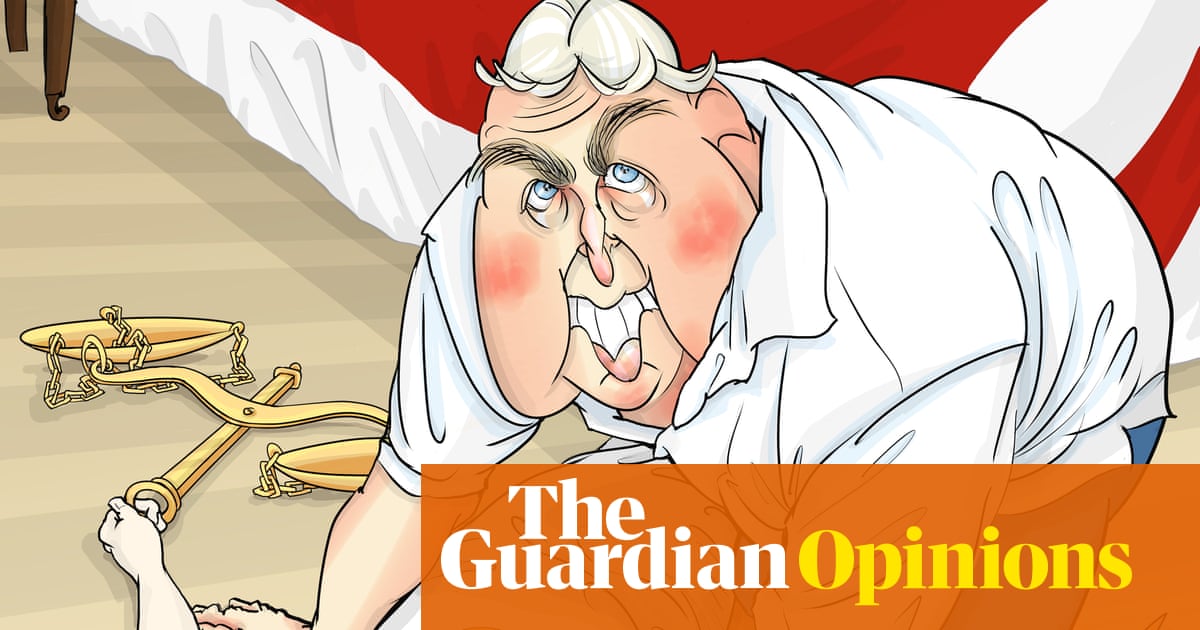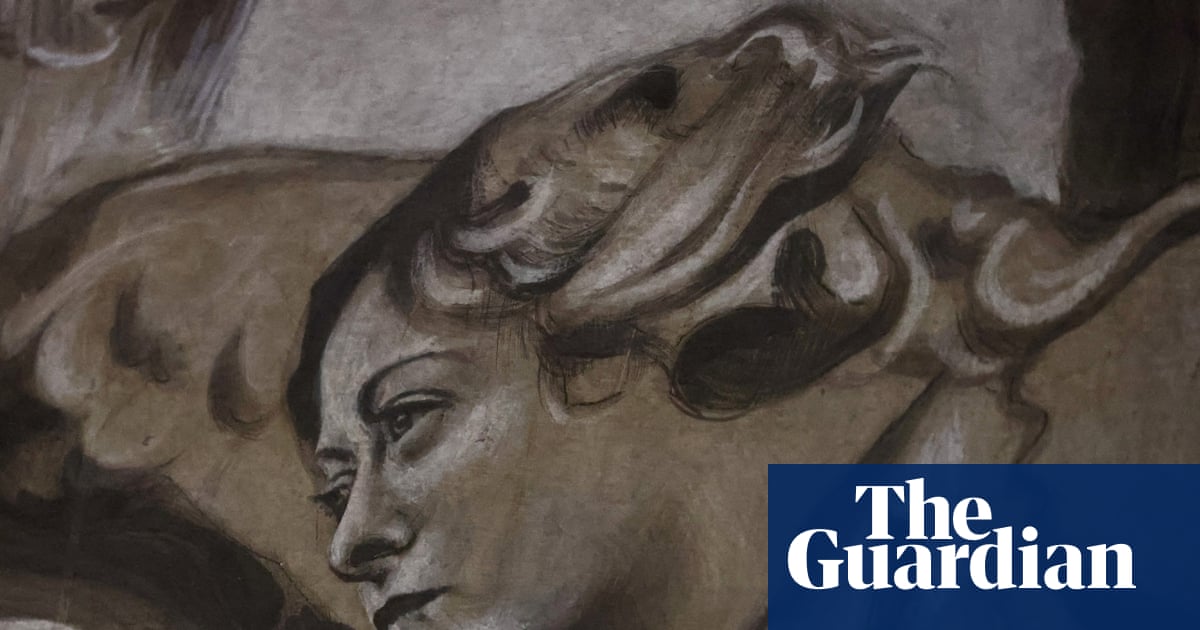Derek Jacobi had a bout of it during a world tour of Hamlet. Bill Nighy wrestled with it in the run-up to The Vertical Hour opening on Broadway. Juliet Stevenson has likened it to “a disease”. It has even caused some to take flight: Stephen Fry disappeared from Cell Mates, while Lenny Henry left the stage during Educating Rita. “I’ve completely gone,” he said – although he did return to finish the show.
Stage fright can cause the shakes but it can also trigger a complete physical freeze-up, to say nothing of a total verbal drying up – all right under the spotlight. So how and why does it take grip? Can it be overcome? And what does it feel like to be seized by the actor’s nightmare?
Meera Syal describes a classic anxiety dream: “I find myself in a costume I don’t recognise, in a role I can’t remember, looking at audiences while I’m naked.” Decades of experience did not render her immune in 2010, while performing a preview of Willy Russell’s Shirley Valentine. “Doing a one-woman show for two and half hours?” she says. “That’s the thing that is going to give you stage fright. I was honestly thinking of ‘doing a Stephen Fry’ just before press night. I could see the open door leading to the courtyard at the back and I thought, ‘If I ran away now, they wouldn’t be able to find me.’”
Syal found the courage to stay, then promptly forgot her lines – but just soldiered on through the haze. “I looked into the abyss and I thought, ‘I’ll get out of it.’ And I did. The character of Shirley Valentine could be improvised because the whole thing was her talking to the audience. So I just made my way around the set and had a little think to myself until the lines came back. I improvised for three or four minutes, speaking complete twaddle in character.”

Larry Lamb has contended with intense nerves over decades of stage work. When he started out as an amateur actor, long before Gavin and Stacey, he loved the rehearsal process but performing filled him with fear. “The minute I got in front of an audience,” he says, “it all started to cloud over. My knees would start knocking uncontrollably.”
The stage fright didn’t lessen when he became a professional. “It went on for about 30 years, but I just got better and better at hiding it.” In 2001, he dried up as Claudius in Hamlet, for the Royal Shakespeare Company. “It was the first preview at Stratford-upon-Avon. I was just into my opening speech, when Claudius is addressing the people of Denmark, when my words got lost in space. It got worse and worse and worse. The whole cast were up on the stage, looking at me as I completely lost it.”
He got through that performance but the director, Steven Pimlott, recognised what had happened. “He realised I wasn’t in control but only looking as if I was. He said, ‘You’re not engaging with the audience. When the lights come down, you then block them out.’”
Pimlott kept the house lights on so Lamb would have to acknowledge the audience’s presence. It was a turning point in the actor’s career. “Little by little, it got better. Because we were doing the show for the best part of the year, gradually the stage fright went away, until I was confident and directly engaging with the audience.”
Now 78, Lamb no longer has the energy for plays but relishes his live shows, performing his own poetry. He says that, as an actor, he kept getting in the way of his character. “You’re not allowing the the space – it’s too much you, not enoughcharacter.”
Harmony Rose-Bremner, who was cast in The Years in 2024, agrees. “Self-consciousness and self-doubt go against everything you’re trying to do – which is to be free, let go, fully immerse yourself in the character. The question is, ‘Can I make space in my head to let the character through?’” In The Years, as one of five actors all playing the same woman in different stages of her life, she was thrilled yet felt intimidated. “I’ve grown up doing theatre. It was always my happy place. I didn’t ever think I’d ever feel performance anxiety.”

She remembers the night of the first preview. “I actually didn’t know if I could go on,” she says. “It was the first time I’d felt like that.” She managed, but felt overwhelmed in the very opening scene. “We were all standing still, just speaking out into the dark. We weren’t looking at one other so we didn’t have each other to bounce off. There were just the lines that I’d heard so many times, coming towards me. I had the classic symptoms that I’d had in miniature before – but never to this extent. The sensation of not being able to breathe properly, like your breath is being sucked up with a vacuum in your chest. There is nothing to hold on to.” It is compounded by the feeling of not wanting to let fellow actors down: “I felt the responsibility to everybody else. I thought, ‘Can I get through this immense thing?’”
Zachary Hart blames imposter syndrome for causing his stage fright. A lower back condition ruled out his aspirations to be a footballer, and he was working as a fork-lift truck driver when a friend applied to drama school on his behalf and he got in. “Standing up in front of people was completely foreign to me, so at drama school I would go last every time we did something. I stycj at ut because it was pure escapism – and was better than factory work. I was going to try my hardest to beat the fear.”
His first acting job was in Nicholas Hytner’s Julius Caesar at the Bridge theatre. When the cast were told the production would be filmed for NT Live, he was “petrified”. Years later, in the first preview of The Constituent, in which he was cast alongside James Corden and Anna Maxwell-Martin, he spoke his first line. “I heard my voice – with its strong Black Country accent – and looked out into this beautiful theatre, with its three-tonne chandelier in my peripheral vision.” He had seldom heard that accent on stage before. “I just froze. I felt I had fooled people to be there. It felt like a million years between my first and the second line. I can’t remember – but I think Anna jumped in.”

Earlier this year, Hart was cast in a star-studded revival of The Seagull, alongside Cate Blanchett, and was required to improvise. “I tried to empty my head when I went on, but an empty head is a nightmare for someone with stage fright. I was putting myself through the fear every night – and it was massively rewarding when it went right. But there was one night when I went on and saw Margot Robbie sitting out there, in front of Liz Truss. My brain couldn’t comprehend seeing them. Then the intrusive thoughts started.”
Hart battled through and believes perfectionism might contribute to pre-performance nerves. Currently starring in the West End hit Stereophonic, he says: “I fear not giving an audience member what they have paid an incredible amount of money to see. It’s about making sure you are performing up at 10. The perfectionism gets to me, but there is a duty that I must take seriously.”
Can stage fright be bypassed? Rose-Bremner, who is playing Nina in The Seagull at the Edinburgh Lyceum and Chichester Festival theatre this autumn, says that what helps is to shift her focus from within her to what’s happening around her. “I remember one of my drama school teachers saying, ‘Your brain can’t think of two things at once. So focus on something outside your thoughts and feelings.’ I try to breathe and listen to something besides the voice in my head. It’s about using the other actors and the story to pull you out of the haze.”
There are things, she says, that you can’t control. “Like the first night, and knowing someone really important is in the audience. But now I’ve made it a rule for myself that if people are talking about how ‘So and so is here’, I just avoid that conversation.”
Hart has his own set of techniques – some drawn from his years of playing football while scouts were keenly watching. “Weirdly, that early training definitely helps on stage. You’re going out there, but remember – you can’t plan where the ball is going to go.”
Syal suggests that the fear of what might go wrong is worse than the freezing itself. “When things do go wrong,” she says, “you find your way back. In the end, nobody dies – and audiences are very forgiving.”

 3 months ago
64
3 months ago
64

















































